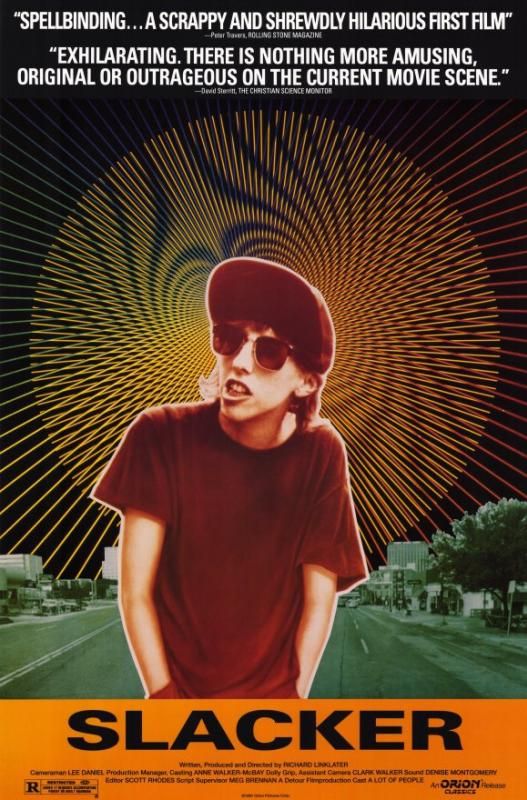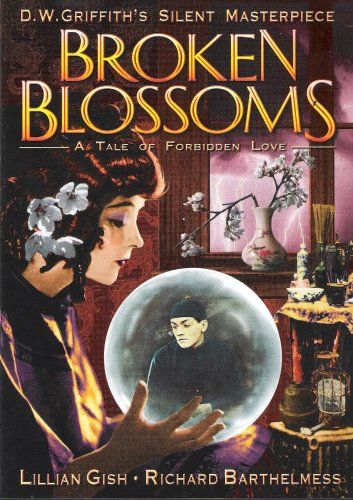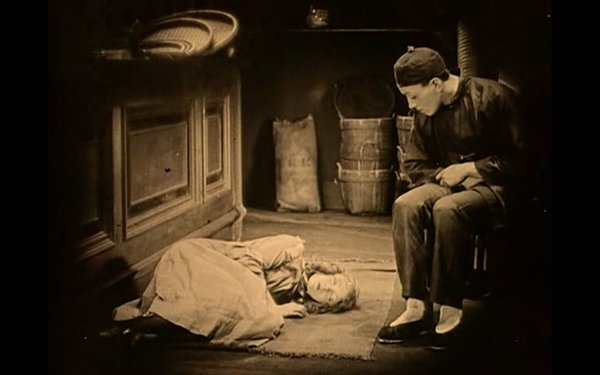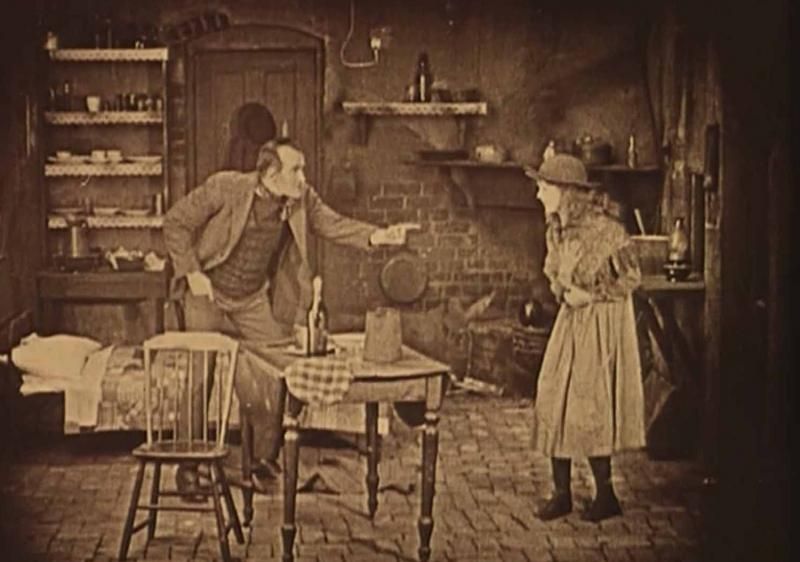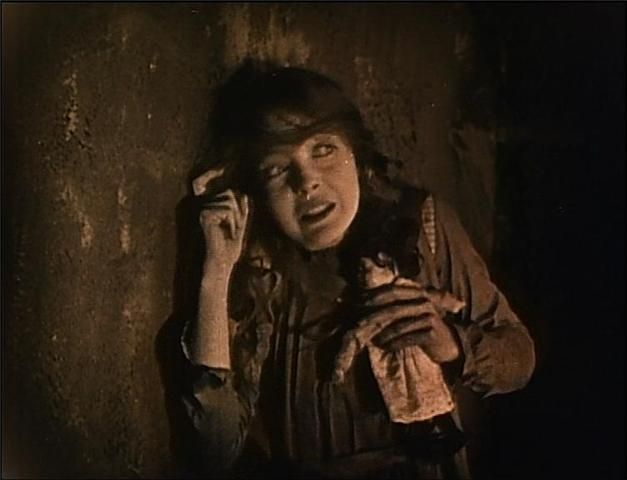The end of summer vacation is a bitch, full of much gnashing of teeth and tearing of hair, and many many little anxiety attacks.
Slacker
1991
Director: Richard Linklater
Starring: um… Austin, Texas
Technically
speaking, I am part of Generation X.
However, I am on the tail end of what chronologically defines Gen X, and
I grew up with enough awareness of the term to understand all the negative
connotations that go along with it. The
characters in Slacker are full on Gen X, no doubt at all, and watching it
makes me feel oddly nostalgic for the early days of The Real World. I shudder,
though, that this film represents a generation with which I am technically a
part.
Slacker isn’t so much a story as it is
a conceit: it is essentially a series of vignettes strung together by
coincidence set in the city of Austin, Texas.
We watch a few people, who are almost always young, unemployed, and
pseudo intellectuals, as they have a conversation. After a few minutes, one of the group leaves
the conversation and the camera follows and moves on, finding a new
conversation and a new group of young people.
This continues as we spend our whole day meandering around the city,
jumping from group to group. There are conspiracy
theorists, nutjobs, anarchists, New Age gurus, and lots and lots of ramblers.
I’m
not a huge fan of this movie, but it has its moments, most of which I find a
bit blackly comic. I’m particularly
amused by the conspiracy theorist, credited at imdb by the role “Been on the
moon since the 50s.” His utter
conviction and nonstop spouting made me smile, as did how easily he passed from
having a discussion with one young man to having it with entirely different
people. Next up is the young man who’s
honest enough to pay for his own newspaper walking into what is easily the most
bizarre diner where a patron yells at him to “stop following me!”, the owner
tells him to “cut it out!”, and the woman at the counter tells him it’s
inappropriate to sexually assault women over and over. Poor guy… and he just wanted change for the
newspaper! Similarly, one of my favorite
sequences is when a would-be robber holds up a homeowner at gunpoint, only to
have that homeowner turn out to be a raging anarchist who not only talks the
robber down but seriously schools his ass.
The fact that the anarchist is an elderly gentlemen is just icing on the
cake.
There
are moments of sympathy in Slacker as well, although they’re
few and far between. A young woman who
gives a quarter and a Diet Coke to a homeless man then tolerantly puts up with
a Kennedy wingnut’s ramblings and very kindly excuses herself without putting
him down in the slightest. A different
young woman makes a slanted illusion to having some fairly serious health
issues, and there is definite tension in her conversation with a young man, who
rather bluntly steps over her confession and begins talking about himself
instead. Every now and then, through all
the meandering conversations that seem to be going nowhere, there is a spark of
real emotion, a hint of real kindness or real pain.
But
for the most part, Slacker is full of void.
This is obviously on purpose, as it is a commentary on the “Slacker”
mentality that seemed to be the defining feature of Gen X in the early
nineties. Rambling conversations by
pretentious unemployed dicks about Dostoyevsky or the power of the video image
are so maddeningly vacuous that I wind up wanting to throttle half the
characters. And this is really my
biggest issue with Slacker; I wouldn’t mind the portrayal of this sort of
mentality as much if I myself felt more removed from it. I find myself in this odd duality, where I
know that I’m a member of Gen X, this generation portrayed here in Slacker,
and yet I feel absolutely no kinship with anyone in the story. I bristle that this is how “my” generation is
seen. And yet, maybe it was this
portrayal of my generation in the media at large that I grew up with that
helped me NOT become this. I remember
watching The Real World in the early
years, watching Clerks when it just came out on home video, and certainly I
remember how much everyone talked about Reality Bites. Heck, I even did a research paper in high
school comparing and contrasting Hemingway’s Lost Generation with Gen X. I was incredibly aware of this media
portrayal, and maybe, in some small part, it drove me to NOT fall prey to the
Gen X stereotype. After college, I
fucking went to grad school. I did
something, goddammit, I studied and worked in a research lab, then student
taught and got a goddamned career.
I
tend to be in favor of nonprofessional actors in films; usually they deliver
surprisingly effective low key performances because they’re not trying to
“act.” I’m not sure if the actors in Slacker
were nonprofessional or not, but if they were, then this could be the film that
puts me off nonprofessionals. The acting
is painful. PAINFUL. The conversations are already rather rambling
and awkward, and when you add on top of that awkward performances, it does not
make for an enjoyable experience. It’s
like watching an Amateur Improv night down at the local comedy club, and not
the good one that gets decent performers.
Just stop. Just stop right there.
To
end on a positive note, my favorite part of Slacker is also the most
incongruous. Linklater spends the whole
film rambling around aimlessly, following people so apathetic they’re hardly
breathing, and so then it is curious that he ends it with a segment that is the
antithesis of everything that preceded it.
As the film goes from a wingnut driving around in his car shouting
absurdities through his roof speakers, we suddenly cut to a group of young
twentysomethings out filming their day adventure on a Super 8 camera. They are happy – unironically happy, even –
as they traipse about and “Skokiaan” plays joyously on the soundtrack. These young people are doing something, they
are not moping about indoors simply talking about doing something. They are happy instead of lethargic. I choose to interpret this ending as
Linklater ending on an optimistic note, recognizing that not everyone in this
generation is as downtrodden as the people who inhabit most of Slacker. Is that what he’s really saying? Who knows, but that is the ending I need it
to be. I need a bit of energy and
happiness and optimism after an hour and a half of mind-numbing apathy.
I
like the central conceit of Slacker quite a bit, and it
definitely has a bit of nostalgic appeal as I remember growing up with this
sort of media representation of who I am supposed to be. But I am not this aspect of Gen X, and I have
never been that way.
Arbitrary
Rating: 6/10
